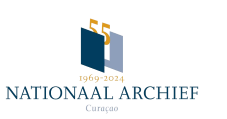Dr. Da Costa Gomez
Towards the end of the Second World War, a great desire emerged for increased autonomy. The cry for autonomy was a result of the vital role of Curaçao sustaining the Allies during wartime. As a result of the Atlantic Charter – the new vision of the Post-War-World, the Netherlands had to restructure their Kingdom. In 1941 and 1942 the Dutch Crown, in two famous radio broadcasts, promised increased autonomy, a new partnership within the Kingdom which would consist of self-governing territories.
On March 21, 1942 Dr. Moises Frumencio Da Costa Gomez, also known as "doktoor", was appointed by Royal Decree as Antillean representative in the "Extraordinary Advisory Board" aimed at restructuring the Kingdom.
This process began, after World War II, in the so called Round Table Conferences, the first one in 1948 between the Netherlands, Surinam and the Netherlands Antilles.
The discussions culminated for the Netherlands Antilles in the “Interim Arrangement” and later the “ERNA”. The Interim Arrangement became effective on February 7, 1951. This arrangement settled the decentralized relationship with the island territories within the Netherlands Antilles and was a prelude to the 1954 “Statute” which settled the autonomy for the federal government (the Netherlands Antilles, containing the six Islands).
Just after the Interim Arrangement, on March 3, 1951, the “ERNA- Islands Constitution Netherlands Antilles” came into effect. With the ERNA provision, the autonomy of the islands was recognized. Some federal government tasks were transferred to the Island Territories making them less dependent on overbearing Curacao; seat of the federal government.
The jurist and politician Dr. Moises Frumencio Da Costa Gomez (1907-1966) was one of the most prominent defenders of the islands’ autonomy. Da Costa Gomez was a member of the Roman Catholic Party. He also was founder of the National Peoples Party. From 1946 to 1954 he was in charge of the Antillean delegations at various Round Table Conferences. He was Chairman of the Board of Government Affairs from 1949 onwards and after the Interim Arrangement, Chair of the first Council of Government of the Netherlands Antilles (19 April 1951- 8 December 1954) which can be considered as the predecessor of the Prime Minister. He was member of the parliament for many years after this.
We can conclude that the fundamental changes still had to be reached, but a temporary arrangement in anticipation of the design in an entirely new structure known as the “Interim Arrangement” can be seen as a transitional step towards self government.

